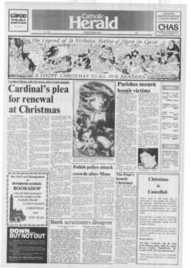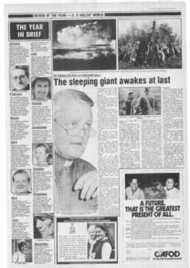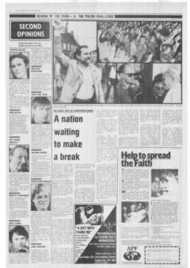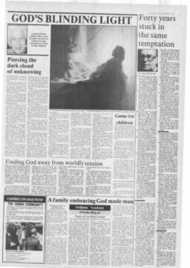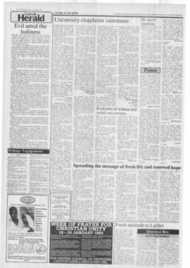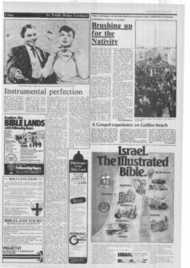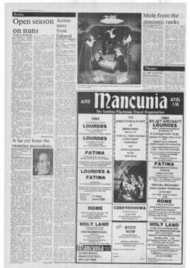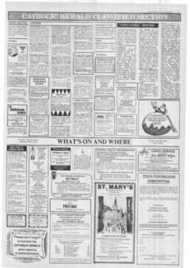Page 6, 23rd December 1983
Page 6
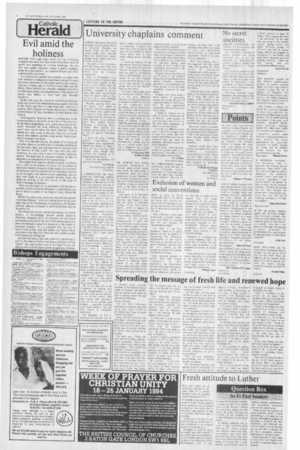
Report an error
Noticed an error on this page?If you've noticed an error in this article please click here to report it.
Tags
Share
Related articles
Closer Links After Enniskillen
Cardinal Condemns ‘false God’ Of Men Of Hate
Let Me Present You With A Problem.
Ulster — The Truth About The Unionist Cause
Christian Leaders Blame Israel For Palestinian Militants'...
This Is Not A Holy War: But Let Us Try At Least To Make...
Herald
Evil amid the holiness
BEFORE YOU read these words over the Christmas weekend there may have been more horrendous news of death is and maimings by terrorist bombings. No one who uses public transport, enters a public building, shops in a supermarket, can consider himself safe from sudden and brutal attack.
It is particularly painful for Catholics to reflect that their nominal co-religionists have been among the most notorious merchants of wholesale death in this century. One has to think only of the Provisional IRA and the Mafia. Non-Catholics are naturally sickened when they see elaborately pious accompaniments to the funerals of people they believe to have been cold blooded murderers.
Earlier this year the Cardinal Archbishop Palermo spoke and acted with immense courage against the evils of the Mafia and there is some hope that such evil is abating. IRA evil goes on despite the no less forthright condemnation of top churchmen in both Britain and Ireland.
Unfortunately, however, there is nothing new in the revelation that in the midst of joy there is lamentation, in the midst of goodness, evil, and in the midst of life, death. Ironically the week following Christmas, the year's most joyous feast, has more reminders than in almost any other week of the year, that evil surrounds beauty and holiness, and like some sinister black cloak, almost smothers it at birth.
Why is it that the Church, by means of its liturgical calendar, allows us so little time to continue.dwelling on the sweetness, light, joy and hope that we associate with the Nativity of Our Lord? The very next day after Christmas we come face to face with cruelty, pain and horror. The feast day in question contains no hint of happiness or consolation in the human senses.
One might think that the Church would let us ponder for a while on the infancy of Jesus, the lovingness of Mary and Joseph, the purity of the angels, the sweetness of innocence and the comfort of love and peace. Instead we are brought, with almost brutal suddenness, face to face with death in a particularly horrible form: the death by stoning of the first martyr to the truth of Jesus's message, St Stephen.
Only two days later we are presented with Matthew's account of how all the Jewish infants in Bethlehem were put to death by order of the King of Juda, Herod the Great.
Before the week is out, moreover, murder has reached "mainland Britain," with the striking down on his own altar steps of the Archbishop of Canterbury, St Thomas a Becket. History is brought to mind by the feast day on December 29.
The dimension of evil, whether in scripture or church history, or horrifyingly present amidst innocent Christmas shoppers, hurls all Christians to their knees in humble gratitude for the gift of life and in prayer for those barbarously injured or bereaved at the hands of fanatical evildoers. It is a reminder that, in view of Jesus's own words, only the Father can forgive those who know what they have done but seem unable to take in the immensity of their sin.
For only He knows fully why such evil is permitted to exist in the midst of holiness as long as the hearts of the "good" men and women such as we hope we are, are tainted even with the slightest hint of jealousy or hatred.
blog comments powered by Disqus


